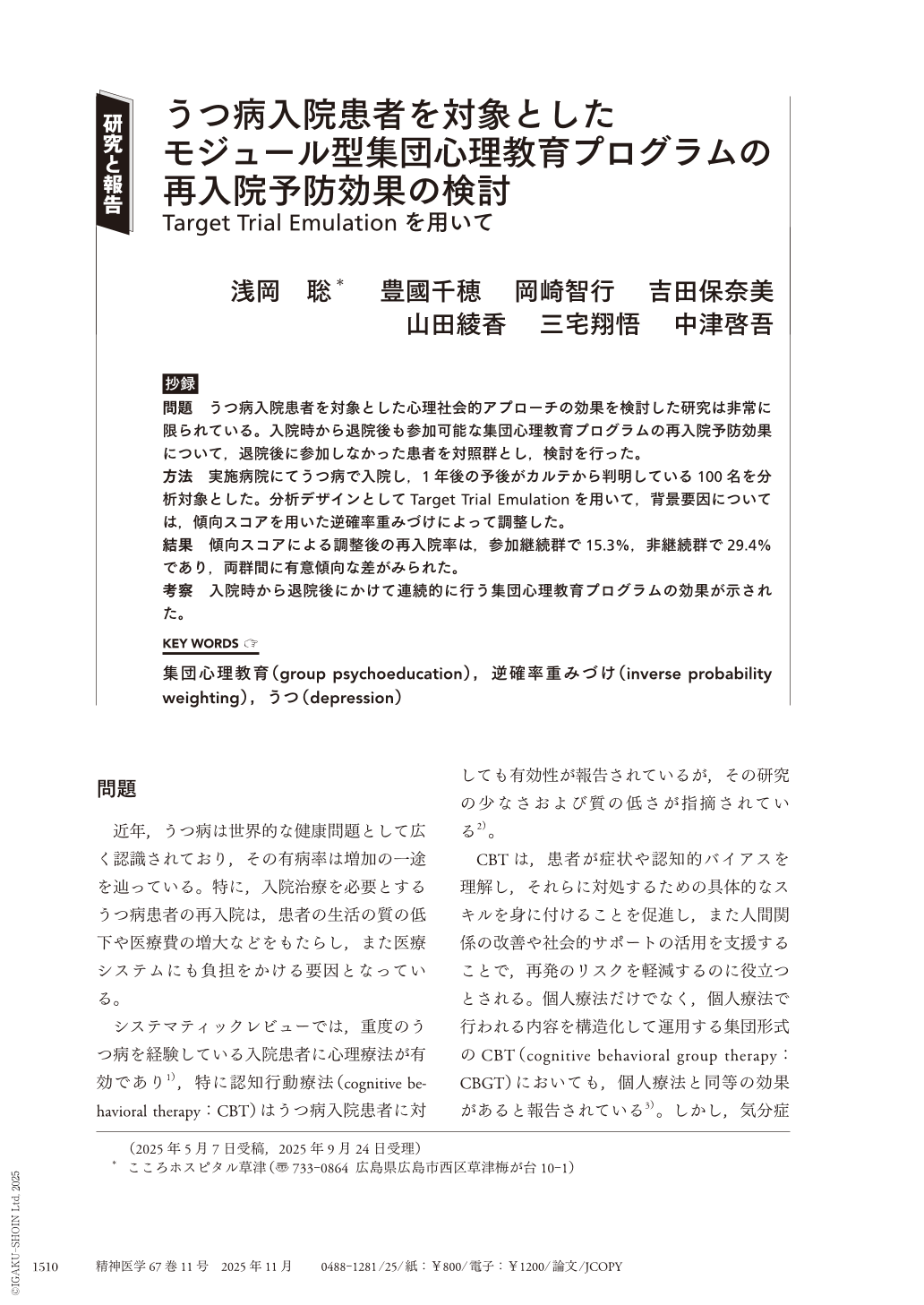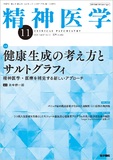Japanese
English
- 有料閲覧
- Abstract 文献概要
- 1ページ目 Look Inside
- 参考文献 Reference
抄録
問題 うつ病入院患者を対象とした心理社会的アプローチの効果を検討した研究は非常に限られている。入院時から退院後も参加可能な集団心理教育プログラムの再入院予防効果について,退院後に参加しなかった患者を対照群とし,検討を行った。
方法 実施病院にてうつ病で入院し,1年後の予後がカルテから判明している100名を分析対象とした。分析デザインとしてTarget Trial Emulationを用いて,背景要因については,傾向スコアを用いた逆確率重みづけによって調整した。
結果 傾向スコアによる調整後の再入院率は,参加継続群で15.3%,非継続群で29.4%であり,両群間に有意傾向な差がみられた。
考察 入院時から退院後にかけて連続的に行う集団心理教育プログラムの効果が示された。
Problem Background There are very few studies that have examined the effectiveness of psychosocial approaches for inpatients with depression. We examined the effect of a group psychoeducation program, in which patients could participate from the time of admission to the hospital and after discharge, on the prevention of re-hospitalization, using patients who did not participate after discharge as the target group.
Methods One hundred patients who were hospitalized for depression at the implementing hospital and whose one-year prognosis was known from their medical records were included in the analysis. The analysis design was Target Trial Emulation, and background factors were adjusted by inverse probability weighting using propensity scores.
Results The readmission rate after propensity score adjustment was 15.3% in the continued participation group and 29.4% in the non-continuing group, showing a significant difference between the two groups.
Discussion The results showed the effectiveness of a group psychoeducation program conducted continuously from the time of admission to the time of discharge from the hospital.

Copyright © 2025, Igaku-Shoin Ltd. All rights reserved.


